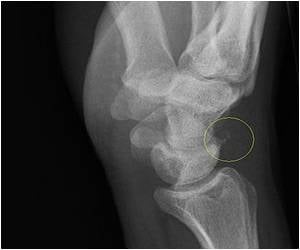Stillbirth is caused by pregnancy complications such as preterm labor or placental abnormalities, reveals US research.

While rare in the United States, stillbirth happens in one of 160 pregnancies, at a higher rate than other developed countries.
A pair of studies published in the Journal of the American Medical Association show that about half the time, one or more pregnancy complications appear to be the cause.
Those include problems with the placenta -- which provide nutrients and blood to the fetus and removes waste -- in 26 percent of cases, said the findings led by researchers at the US National Institutes of Health.
Infections caused 14-19 percent of stillbirths, and fetal abnormalities and problems with the umbilical cord were each linked to about 10 percent of stillbirths.
Looking at data from 500 pregnant women across five states, researchers were able to identify a probable cause of stillbirth in 61 percent of cases. About a third of those were linked to one or more causes.
Advertisement
The study began with a potential set of over 900 women and ended with just 500, because it focused only on those who had ordered a complete post-mortem analysis.
Advertisement
"Greater availability of medical evaluation of stillborn infants, particularly autopsy, placental exam and karyotype (chromosomal analysis), would provide information to better understand the causes of stillbirth."
Researchers also found African-American women face more than twice the risk of stillbirth than white or Hispanic women.
"The consistent and persistent racial disparity in stillbirth (2.3-fold risk for non-Hispanic black compared with non-Hispanic white women in the United States remains largely unexplained," the study said.
While the gap is often attributed to less frequent prenatal care among blacks, research shows that "racial disparity for stillbirth persists, even in women with prenatal care."
Ninety-eight per cent of the 7,000 stillbirths that occur each day happen in developing countries, according to research published in the Lancet earlier this year.
Finland, with two stillbirths per 1,000 births, has the lowest rate in the world, whereas Nigeria and Pakistan, with more than 40 per 1,000, are the highest.
The US rate is 6.2 stillbirths per 1,000, or just over a half percent of all births, a rate that has remained stagnant since 2003 but which the study authors called "unacceptably high."
The second study was led by George Saade of the University of Texas Medical Branch at Galveston, and examined risk factors that could be glimpsed at the start of pregnancy.
Some factors that were strongly associated with stillbirth included black ethnicity, diabetes, age 40 or older, AB blood type and a history of drug use with addiction.
Others included cigarette smoking within three months of pregnancy, being overweight or obese and not living with a partner.
"Further research is needed to identify pregnancies at highest risk overall and for specific causes," the study added.
Source-AFP















